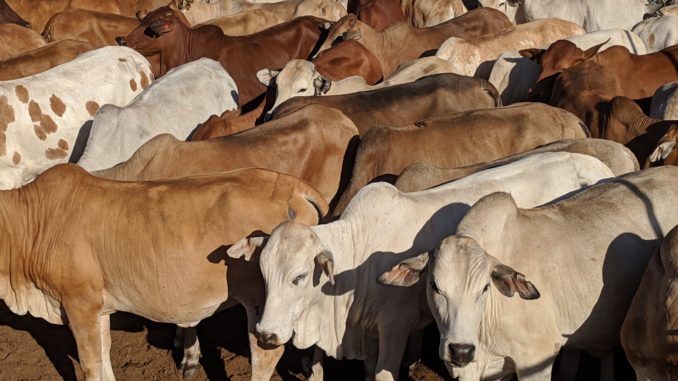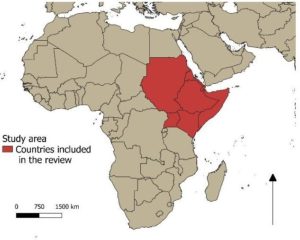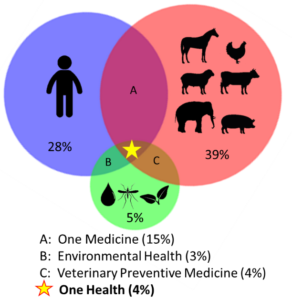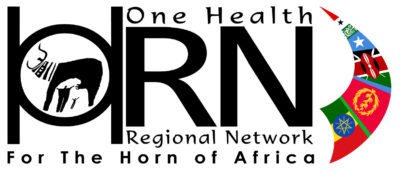
Dr Lisa Cavalerie, Post-Doctoral Research Associate and Dr Siobhan Mor, Reader, are based at the International Livestock Research Institute (ILRI) in Addis Ababa, Ethiopia.
The One Health concept is of particular importance to the Horn of Africa region, where people’s livelihoods are highly dependent on livestock and their shared environment. Zoonoses have a dramatic impact on both human and animal health in the region, and can have a substantial economic impact on livestock owners.
Along with other HORN colleagues (Marie McIntyre, Ophélie Lebrasseur, Mark Nanyingi, Rob Christley, Gina Pinchbeck, Maya Wardeh and Matthew Baylis), Lisa and Siobhan embarked on a scoping review of publications to characterize and evaluate the nature of zoonotic disease research in countries of the Horn of Africa (Djibouti, Eritrea, Ethiopia, Kenya, Somalia, Sudan, South Sudan and Uganda). Specifically, their review aimed to address the following questions:

- What zoonotic diseases have been prioritized for research in each country,
- What data were reported (human, animal, environment),
- What methods were applied
- What collaborative networks are involved in such research (north-south, south-south)
- What degree research investment aligns with country-level disease prioritisation exercises.
A total of 9,222 scientific publications were retrieved through database searches, which, after duplicate removal, and inclusion criteria assessment, resulted in more than 2,000 relevant studies. Ethiopia had the largest number of publications followed by Kenya, while Djibouti and Eritrea had a fewer than 21 publications on zoonoses each. The most frequently studied zoonoses across all countries were brucellosis and echinococcosis.
It was also found that research investment did not correlate well with disease prioritisation exercises. For example, in Ethiopia, rabies, anthrax, brucellosis, leptospirosis and echinococcosis have been identified as priority zoonoses by government and other stakeholders (Pieracci et al., 2016). By contrast, much of the research effort has focused on: bovine tuberculosis, echinococcosis, brucellosis, gastrointestinal bacteria and rabies. In comparison, very little research has been published to date on anthrax and leptospirosis in the country.
A large majority of studies used epidemiology methods (descriptive or cross-sectional) generating a low level of evidence with frequent duplication for well-studied diseases. Only a minority of publications addressed multiple domains (human, animal and environment) and thus few publications met the criteria for One Health research according to the Checklist for One Health Epidemiological Reporting of Evidence (COHERE) (Davis et al. 2017) (Figure 2).

Recommendations arising from this scoping review include: (1) reducing study duplication through better communication and collaboration; (2) aligning research with country priorities; (3) encouraging One Health approaches and reporting following COHERE guidelines; (4) adopting research methods that support evidence-based zoonoses management.
This work has been presented at the 3rd OHCEA international One Health Conference in Kampala, Uganda, July 2019 and at the 11th European Congress on Tropical Medicine and International Health (ECTMIH) in Liverpool, UK, September 2019. It also supported the latest One Health zoonotic diseases prioritisation workshop organised in Ethiopia in August-September 2019.
